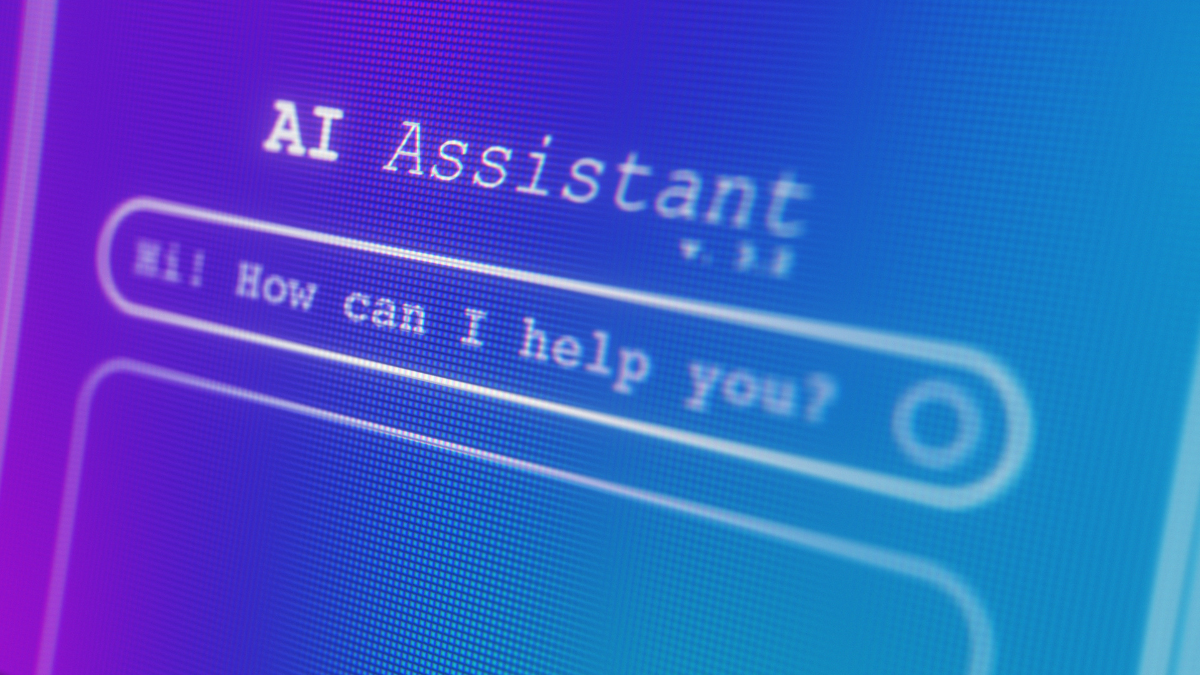Should You Invest in AI Stocks?
If you want to invest as an expat or high-net-worth individual, which is what i specialize in, you can email me (advice@adamfayed.com) or use WhatsApp (+44-7393-450-837).
Introduction
Investing in AI stocks is one of many investment opportunities.
To begin, let us briefly examine how AI is disrupting the world these days, especially after the boom of several AI innovations.
AI, or artificial intelligence, is undeniably disrupting the technology landscape in profound ways.
Here are a few key points highlighting its transformative impact:
— Automation and Efficiency
AI is revolutionizing industries by automating tasks that were once time-consuming and repetitive.
This automation boosts efficiency and allows human workers to focus on more creative and strategic aspects of their jobs.
— Personalization
AI enables highly personalized experiences across various applications, from recommendation engines on streaming platforms to targeted marketing campaigns.
By analyzing vast data, AI can tailor content and services to individual preferences, enhancing user satisfaction.
— Healthcare Advancements
AI is making significant strides in healthcare, from diagnosing diseases using medical imaging to drug discovery and personalized treatment plans.
AI-driven predictive analytics can help identify health risks and intervene early.
— Natural Language Processing
AI-powered natural language processing is transforming how we interact with technology.
Voice assistants like Siri, Alexa, and Google Assistant are becoming increasingly sophisticated, making accessing information and controlling devices through spoken commands easier.
— Autonomous Vehicles
AI plays a pivotal role in the development of autonomous vehicles, enhancing safety and efficiency in transportation.
Self-driving cars use AI algorithms to perceive their surroundings, make decisions, and navigate complex road conditions.
— Financial Services
In the financial sector, AI optimizes fraud detection, automates trading, and improves customer service with chatbots.
It analyzes vast datasets to identify market trends and investment opportunities.
— Manufacturing and Robotics
AI-driven robots and automation systems are streamlining manufacturing processes, leading to increased productivity, reduced errors, and improved quality control.
— Environmental Impact
AI is helping address environmental challenges like climate modeling, energy efficiency optimization, and wildlife conservation.
All of this has been done through the specialized applications designed through AI.
AI also aids in monitoring and managing resources more sustainably.
— Education and Training
AI-driven adaptive learning platforms are personalizing education, allowing students to learn at their own pace.
Additionally, AI assists in assessing student performance and providing targeted support.
— Security and Cybersecurity
AI is being used to detect and respond to security threats in real-time, protecting systems and data from cyberattacks.
It can identify anomalous patterns that might go unnoticed by human analysts.
— Content Creation
AI-generated content, including text, images, and videos, is becoming more prevalent.
This has implications for content creation, journalism, and creative industries.
Finally…
In summary, AI is a disruptive force reshaping technology across various sectors.
Its ability to process vast amounts of data, make predictions, and learn from experience drives innovation and efficiency.
At the same time, it is also raising ethical and societal questions that must be carefully considered as AI continues to evolve.
But before we get to the investments related to AI, I think we should look at the different types of AI.
Artificial Intelligence: An Overview

Artificial intelligence employs computational power to mimic human thinking, address problems, and complete tasks.
ChatGPT, a form of “generative AI,” goes beyond data analysis; it utilizes its data-driven insights to “generate” responses.
In this context, it uses AI to answer questions based on data from millions of web pages.
It lacks actual knowledge but predicts answers by understanding word relationships.
However, AI’s applications extend beyond text-based responses.
AI fuels advancements in self-driving cars, cloud computing, and offers assistance to various fields, from medical diagnoses to cost-saving strategies in manufacturing.
“Artificial intelligence was once seen as a niche or specialized investment,” notes Mike Loukas, Principal and CEO of TrueMark Investments.
“Now, it’s permeating various facets of business, society, and daily life.
As it becomes an indispensable tool for businesses, B2B applications will become increasingly significant in investment portfolios.”
Is AI a Viable Investment?
Investing in artificial intelligence holds promise, but it’s crucial to recognize that AI is a relatively young industry.
Consequently, determining which stocks will benefit most from AI advancements remains challenging.
Nevertheless, major tech firms are heavily investing in AI, viewing dominance in this field as vital for maintaining competitiveness.
For investors, the challenge lies in identifying the companies that will thrive as AI matures.
Why Is AI Gaining Prominence?
The introduction of ChatGPT to the public in November 2022 sparked a surge of interest in AI.
This heightened curiosity may also stem from ongoing volatility in the tech markets, prompting investors to seek the next transformative innovation driving sector growth.
Microsoft’s $1 billion investment in OpenAI, the creator of ChatGPT, in 2019, and its efforts to integrate AI into its Bing search engine, demonstrate the importance tech giants place on AI.
The Future of AI
As online transactions proliferate among consumers and businesses, opportunities to integrate AI into everyday life expand.
Approximately 44% of businesses are actively working to incorporate AI into existing applications and processes, as per the 2022 IBM Global AI Adoption Index.
AI’s utility will increase alongside its expanding range of applications, with developers striving to enhance reliability.
“ChatGPT represents just one facet of AI, albeit a captivating one,” Loukas asserts.
“When evaluating investments, one must differentiate between hype and the underlying business model.”
Prominent AI Companies for Investment
AI investments take various forms, ranging from companies dedicated to AI development to those benefiting indirectly from AI technology.
Considerations extend to adjacent industries, such as cybersecurity, data processing, and chip manufacturing, which AI requires to flourish.
Companies like Cloudflare, specializing in edge computing, and MongoDB, a database platform developer, present potential investment opportunities.
Additionally, companies at the intersection of electric/self-driving vehicles and AI, like SES AI and Argo AI, are worth exploring.
AI Startups of Interest
AI startups are abundant, and while many aim to secure a foothold, only a few may succeed or be acquired by larger firms.
This is due to the capital-intensive nature of AI development.
Retail investors should note that some startups remain open for investment, with a significant portion yet to secure equity funding.
AI Exchange-Traded Funds (ETFs)
For diversified AI investments, exchange-traded funds (ETFs) offer a solution.
However, investors should scrutinize AI-focused ETFs to ensure alignment with their goals.
Some purportedly AI-focused funds may closely resemble rebranded tech funds.
Understanding a fund’s construction and evaluation criteria is essential.
Starting Your AI Investment Journey
Investors should conduct thorough research on companies and their competitors before investing.
While deep technical expertise isn’t mandatory, a basic grasp of the business and its differentiation strategy is essential in the competitive AI landscape.
In conclusion, AI investment holds promise but demands careful consideration.
It’s an evolving field with significant potential across various sectors, and suitable investments can yield substantial returns.
However, navigating the AI landscape discerningly is vital, separating hype from genuine investment opportunities.
Types of AI

If you’re a novice investor looking to venture into AI investments, you might be uncertain about where to begin.
Like any emerging technology, AI is surrounded by a lot of hype, challenging to distinguish valuable information from noise.
This introductory guide to AI investing will delve into artificial intelligence and its four distinct categories.
We’ll also explore investment options within the AI domain and assess the advantages and disadvantages of investing in AI.
All of this process is done to help you determine if it aligns with your financial goals.
Four Common AI Types
Artificial intelligence pertains to the use of machines to emulate human intelligence or the capacity of computers to learn from data and make informed decisions.
As per contemporary classification, four primary types of AI exist, which are as follows.
Reactive AI
Reactive AI represents the most rudimentary form of artificial intelligence.
As the name implies, it operates predictably in response to incoming information.
However, unlike other AI types, it lacks the ability to learn from past interactions.
Examples include IBM’s Deep Blue, the chess-playing supercomputer, and email spam filters.
Limited Memory AI
Limited memory AI stands as the next evolutionary step in AI development.
It possesses the capability to learn from experience, combining this knowledge with pre-programmed data to tackle complex tasks.
This form of AI is prevalent in various applications today.
For instance, autonomous vehicles utilize limited memory AI to interpret the actions of surrounding vehicles and respond accordingly.
Notably, the information is not retained in the vehicle’s long-term memory, as it isn’t necessary.
Theory of Mind AI
Theory of mind AI represents advanced AI systems with decision-making abilities akin to those of humans.
They can comprehend and recollect emotions, adapting their actions accordingly.
Researchers are actively engaged in the pursuit of developing a theory of mind AI.
Self-aware AI
Self-aware AI is the most sophisticated, comprising machines that possess self-awareness of their emotions and those around them.
This type of AI may still be a distant prospect and has raised concerns among technologists and others who speculate about AI’s potential threats to humanity.
Yeah, this relates to the Terminator, and we might need to be afraid of such disruptive technology.
I still think we are at least a century away from experiencing Terminator-like AI systems directly.
Keeping the fictional part aside, AI is still somewhat evolving and might present lucrative opportunities.
Other Details
AI represents a ground-breaking technology poised to contribute trillions to the economy.
Picking successful ventures in this emerging field is challenging.
A majority of companies are actively embracing AI’s capabilities.
The prevailing excitement may have inflated the value of AI stocks.
Investors aligned with AI’s transformation may reap substantial stock gains.
Considerable uncertainty remains, particularly concerning AI’s regulatory landscape.
We also have to remember movies like Terminator, which create a nightmare.
Is AI Investing Suitable for You?
AI investing is not a one-size-fits-all approach.
As a novice investor, it’s prudent to allocate only a fraction of your portfolio to AI stocks, given the high-risk nature of this sector.
Nonetheless, the potential for substantial returns is significant, making it wise to include at least a modest exposure to AI stocks.
Consider exploring the companies mentioned earlier and prioritize those with enduring competitive advantages within artificial intelligence and beyond.
Revolutionizing Employment

Artificial Intelligence (AI) possesses the potential to bring about significant changes in employment.
It is expected to reshuffle job landscapes and usher in novel employment opportunities as it undergoes a global workforce transformation.
The contemporary economy is no stranger to technological advancements causing labor market shifts.
Especially with China offering a striking illustration of this phenomenon over the last three decades.
In China, the agricultural workforce dwindled from 60% of the labor force in 1991 to 24% in 2021.
This transformation was powered by technological innovations such as tractors, harvesters, processing machinery, irrigation systems, and seed enhancements.
As a result, individuals migrated to urban centers to engage in manufacturing roles, which surged as a proportion of the economy.
These developments elevated income levels for workers in burgeoning industries and even those who remained in agriculture.
This is according to data from China’s National Development and Reform Commission.
The Technological Evolution of China’s Labor Market
A line graph illustrates the decline in the percentage of China’s workforce employed in the agricultural sector from 1991 to 2021.
Source: Charles Schwab, World Bank data as of 8/6/2023.
AI’s economic impact could potentially be swifter and more transformative.
As humans and machines synergize their intelligence, opportunities emerge for the betterment of both workers and businesses across established and emerging industries.
AI-driven productivity enhancements may lead to wage increases and corporate profit growth.
There is even the possibility of bolstering government revenues through taxes on higher incomes earned by workers and firms.
This could also spur a new wave of globalization.
While traditional globalization has centered on producing and moving goods, the next phase may revolve around services.
For instance, the shortfall of personnel in healthcare and education sectors within local communities worldwide could be mitigated by AI-powered bots developed by multinational providers competing in this space.
Enhanced Productivity on the Horizon
The job market is currently very tight, with historically low unemployment rates in the U.S., Canada, Germany, and the UK.
This leads to rising labor costs and potential growth slowdowns, which central banks are closely watching.
AI can help by filling job gaps and increasing worker productivity, but we need to explore how much and how soon this will happen.
History shows that adopting new technologies and integrating them into business takes time, like with the internet and GPS.
Companies are now investing in AI, as seen in the increasing mentions of AI in quarterly earnings calls.
AI mentions have surged to over 3,000 during this year’s second and third quarters, which is likely to continue in the third quarter.
Currently, only a small number of companies have integrated AI into their operations.
A survey conducted by the U.S. Census Bureau, published in November 2022, found that just 4% of businesses were using AI.
While specific industries like retail have embraced AI for:
⁃ Product recommendations
⁃ Adoption remains limited in manufacturing
⁃ Drug development
⁃ Transportation
⁃ Construction
⁃ Customer service
⁃ Healthcare
⁃ Agriculture
⁃ Mining
Historically, higher and faster investments in new technologies by businesses have led to more significant productivity gains.
We can gauge AI’s potential impact by tracking investments in AI-related equipment and software for information processing.
Similar patterns were observed during the internet boom of the 1990s, where an upturn in technology investments by businesses preceded a rise in productivity a few years later.
Businesses are likely to increase their investments in AI as they recognize its benefits, potentially leading to productivity gains in the coming years.
However, the extent of this impact will depend on the pace of investment and various challenges, including rising capital costs and regulatory and privacy concerns.
Investing in AI is becoming more accessible, with a range of AI-related stocks, ETFs, and mutual funds available.
AI investments are not limited to U.S. manufacturing companies; they span industries and borders.
Companies like Nvidia rely on global partners like Taiwan Semiconductor Manufacturing Company (TSMC) and Netherlands-based ASML for critical components in AI technology.
Furthermore, machine learning has transitioned from academia to industry, creating opportunities for global firms with extensive data in finance, healthcare, and consumer products to advance AI technology.
AI is a global theme, as shown in the distribution of machine-learning models.
Machine-Learning Models
Selecting winning companies and timing investments correctly in any new technology is challenging.
Diversification can be a strategy to gain exposure to the AI theme while minimizing the risk associated with individual companies.
Consider investing in AI stocks that provide essential hardware and software components or use AI to enhance products and gain a competitive edge.
Be cautious with companies that suddenly promote AI but have a history of poor performance.
For example, during the 2017 blockchain boom, a small company, previously known for iced tea, rebranded as Long Blockchain Corporation, causing its stock price to skyrocket by up to 380%.
Despite lacking involvement in blockchain or expertise, its Nasdaq-listed stock reached an intraday high of $9.49 in December 2017, only to plummet to less than $0.09 per share within a year.
The Nasdaq delisted Long Blockchain in February 2021 for misleading statements and exploiting investor interest in bitcoin and blockchain technology, as the Securities and Exchange Commission reported.
Is There an AI Bubble?
Is the AI-related stock surge like past investing bubbles?
Throughout history, financial markets have seen recurring investment bubbles.
These bubbles occur when asset prices detach from their actual value.
While bubbles are typically recognized after they burst, there’s a recurring pattern involving certain conditions that can predict them.
Investment bubbles often start during exceptionally loose monetary policies following global recessions.
They arise from easy money, thrive on speculation driven by a strong theme and investor confidence, and eventually collapse as monetary conditions tighten, often straying far from intrinsic value.
However, the conditions typical of classic investment bubbles no longer apply.
The meme investing trend in 2021, during the era of low interest rates, quantitative easing, and ample government support, might have been the classic bubble of the 2020s.
But central banks have been aggressively raising rates for over a year, and the money supply in many major economies is shrinking.
It doesn’t seem that easy money is driving the AI stock surge.\
This doesn’t guarantee that AI stocks won’t decline or disconnect from their fundamentals, but it suggests that their rise might not be another classic bubble, which historically led to disappointment for investors.
Disadvantages of Investing in AI Stocks
Investing in AI stocks offers significant potential but comes with disadvantages and risks.
Here are some disadvantages of investing in AI stocks:
— Volatility
AI stocks can be highly volatile, subject to rapid price fluctuations, and influenced by market sentiment.
This volatility can result in significant short-term gains or losses.
— Risk of Overvaluation
The hype surrounding AI technology can lead to overvaluation of AI stocks, where the market prices exceed the actual intrinsic value of the companies.
This can make it challenging to identify reasonably priced investments.
— Regulatory Uncertainty
The regulatory landscape for AI is still evolving, and changes in regulations or government policies can impact AI companies’ operations and profitability.
— Competition
The AI industry is highly competitive, with many companies vying for market share.
Established tech giants and startups are continually innovating, making it difficult for smaller companies to compete effectively.
— Lack of Profitability
Many AI companies are in the early stages of development and may not yet be profitable.
Investors may need to wait for a considerable time before seeing returns on their investments.
— Technological Risks
AI is a rapidly evolving field, and companies must stay at the forefront of technological advancements to remain competitive. Investments in AI stocks may be subject to technological obsolescence.
— Data Privacy Concerns
AI companies often deal with large amounts of sensitive data, which can expose them to data privacy breaches and legal challenges.
Mishandling of data can result in reputational damage and financial penalties.
— Dependency on Talent
AI companies rely on skilled professionals and researchers to develop and maintain their technology.
A shortage of talent in the field can pose challenges for growth and innovation.
— Market Sentiment
AI stocks can be influenced by market sentiment and trends, leading to price fluctuations that are not always aligned with a company’s fundamentals.
— Global Economic Factors
Economic downturns and global events can impact AI stocks, as with any investment.
Economic uncertainties may affect consumer spending and business investments in AI technology.
It’s essential for investors to conduct thorough research, diversify their portfolios, and carefully assess the risks and rewards associated with investing in AI stocks.
Additionally, considering a long-term investment horizon and staying informed about industry developments and regulatory changes can help mitigate these disadvantages.
Bottom Line
Investing in AI stocks offers exciting opportunities in a rapidly evolving sector with the potential for substantial returns.
As AI technology continues to transform various industries, companies harnessing its power stand to benefit.
However, prospective investors should tread cautiously and be aware of the unique challenges associated with AI investments.
Volatility, regulatory uncertainties, and fierce competition characterize the AI landscape.
Overvaluation and the risk of investing in unprofitable companies are real concerns.
Additionally, the rapid pace of technological advancement and the need for top talent can impact long-term prospects.
While the AI boom may appear reminiscent of past investment bubbles, it differs in significant ways.
Central banks’ interest rate hikes and shrinking money supplies suggest that the surge in AI stocks may not follow the typical bubble trajectory.
Investors interested in AI should prioritize research, diversify their portfolios, and adopt a long-term perspective.
Staying informed about regulatory changes and industry developments is essential to successfully navigate the evolving AI landscape.
Ultimately, AI stocks hold promise, but due diligence and a measured approach are vital to reaping the rewards while managing the associated risks.
That being said, making investment decisions on your own may be risky as you may not have the necessary experience.
If you are an expat or a HNWI, feel free to contact me to find out whether you can benefit from my investment solutions.

Adam is an internationally recognised author on financial matters with over 830million answer views on Quora, a widely sold book on Amazon, and a contributor on Forbes.



